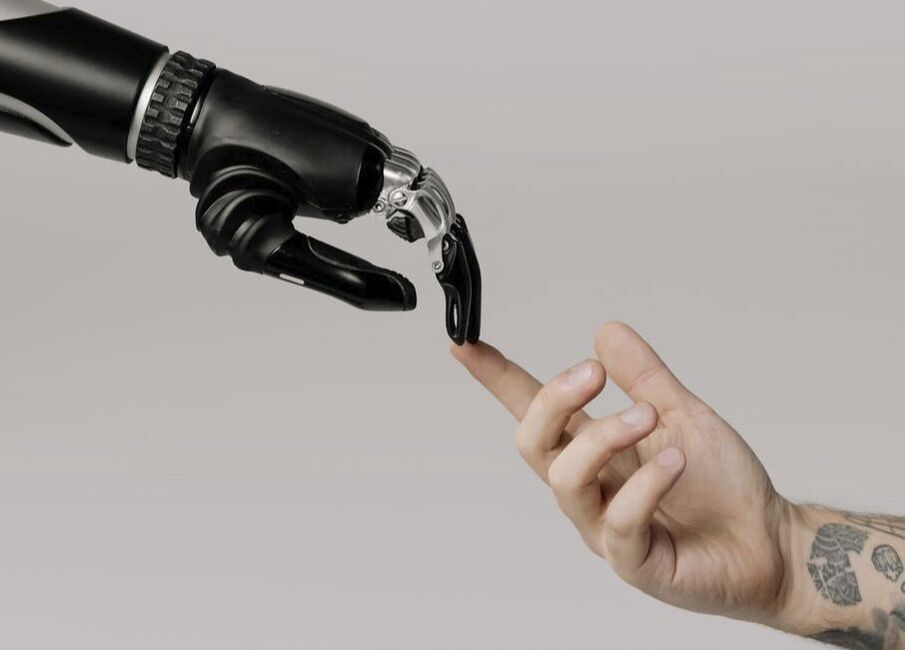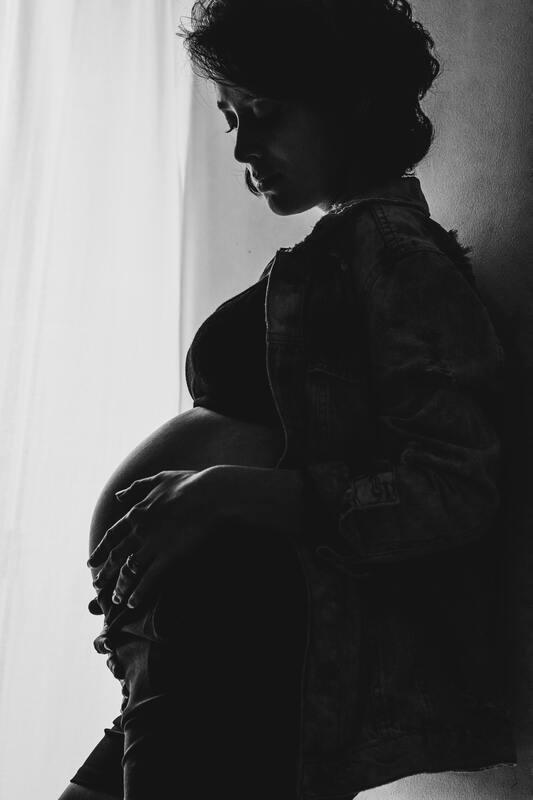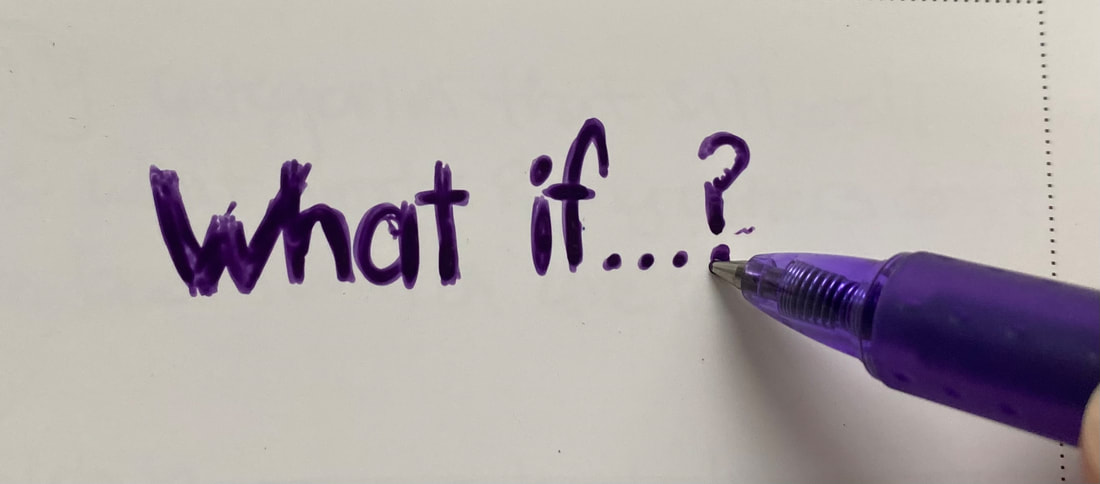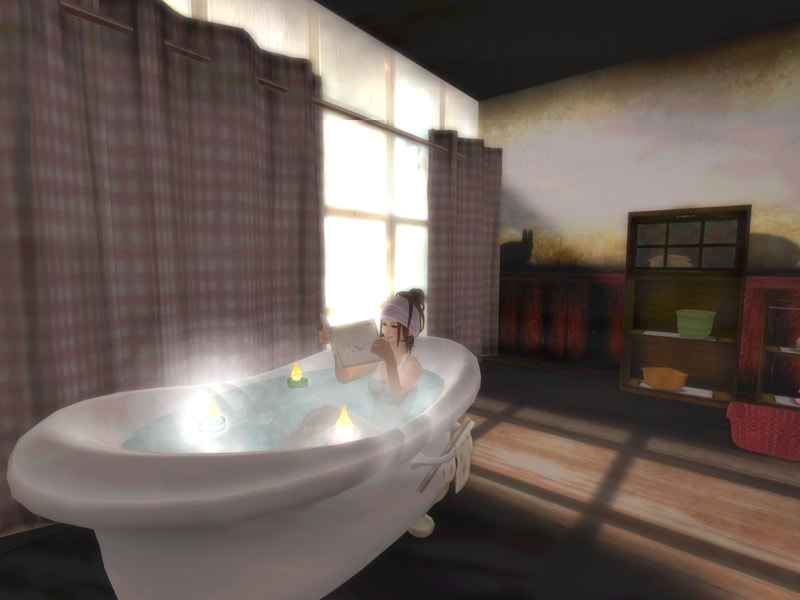|
I've been wrestling with the question of human evolution for a while now. It's a thought exercise that came up while I was researching and writing my novel, The Other Women.
Natural evolution is an inconceivably slow process. It takes basically forever for nature to work out what traits will work best on a given organism in a given environment. I was going to insert some really interesting factoids here about how long it took things like prehensile tails and marsupial pouches to evolve, but the truth is that this stuff happens so slowly and incrementally, there's really no clear answer to those questions. Just think how many iterations nature went through before we humanoids developed the ability to walk fully upright as we do. Gradually that happened, over millions and millions of years. 
But technology has changed all that.
Technological advancements have already allowed humans to survive and thrive in areas where they would otherwise perish - if they even managed to get there at all - and many of us wouldn't be here if not for medical advancements made in the last hundred years. Things that would sound like science fiction to our grandparents are commonplace today. For example, a third of U.S adults report that they or someone they know has used fertility treatments, according to the Pew Research Center. More than 250 million courses of antibiotics are prescribed annually. Six-hundred-fifty thousand patients take chemotherapy each year, according to the CDC. This is just a short sampling of the ways medical technology has created and sustained life where, before, there would have been none. All this is possible today, and there is no end to the potential for innovation in coming years. Which makes me wonder: Where is the line? What is the limit? How will we know when enough is enough? I read an article in the Times a few months back that I found at once fascinating and altogether unsurprising: Scientists Grow Mouse Embryos in a Mechanical Womb. Science did that. Scientists took embryos out of a mama mouse, put them into mechanical wombs, and grew them for a week or so with no incident. It's a pretty low-level process compared with growing a whole human baby in one of those things, but I can almost guarantee you that's on the horizon. Why would we want to grow a human baby in an artificial womb? Lots of reasons, which I'll get to in the Newsletter (where I'll share some of the reproductive technology research I put together before writing the The Other Women) and in next week's post. What's important for this conversation is the likelihood that, eventually, it will happen. And when it does, after a while, it might feel just as commonplace as in vitro does today. A hundred years ago, cancer was a death sentence. If a person was unable to conceive a child naturally, they were destined for other avenues of parenthood, or not. An infection that's easily treatable with today's medications had a pretty good chance of killing you. While some of us are naturally inclined (*raises hand*), I don't think there are many of us who would prefer these outcomes. We use technology to help us survive, and while we do evolve socially, technology does much of the physical adaptation for us. Advancements in science, technology, and medicine have progressed our society at light speed over the last century compared with other time periods in history. But does that mean we've given our evolution over to technology? How has technology changed the meaning of the term "evolution"? How might it continue changing in the coming decades? I'd love to know your thoughts; just comment below!
0 Comments
Back in early 2019, I found myself in an interesting situation. I had written a book, and I was super proud of myself. I also knew the book was terrible (as all first drafts are) and I needed help making it less terrible.
I found a resource where I could meet with a bookish-type person who could review the manuscript, give me feedback on marketability, and advise me on how I might go about getting my book baby out into the world. I chose someone from the list who looked kind and gentle, and I sent her an email. We didn't end up working together (I ended up getting into the Ultimate Novel Writing Course, in which my tutor, Amanda, gave me exactly what I needed), but I did get a few useful nuggets out of our brief correspondence. Two words that stood out most strongly were feminist dystopia. I hadn't yet gotten to the point where I'd considered the genre into which my book would fit, but here it was, wrapped up in a neat little bow by someone who had only read a one-page synopsis of the 85,000-word book. It's possible you haven't heard of feminist dystopia before. I hadn't either, but once the words were spoken it became pretty easy to backward-map them onto something with which I was already familiar: The Handmaid's Tale. I hadn't yet read this book, released in 1985 by Margaret Atwood, but I certainly had binged the series. Try as I might, though, I couldn't think of any more books in the genre. After many searches, I've compiled a list of such books. I've read them all, for enjoyment as well as to educate myself in the feminist dystopia genre so I can know what makes my own novel stand out. It will be a bit still before The Other Women is on shelves, and so in the meantime I wanted to pass the list along to you. If you enjoyed The Handmaid's Tale, or if you’re one of my lucky beta readers* who read and enjoyed your advance copy of The Other Women, you will likely enjoy these as well. Just a note that these are affiliate links, so if you happen to click and buy one of these books, it won’t cost you any more but I may earn a small portion of the sale.
There it is! These are the books I've been able to find in the feminist dystopia genre. Something I've noticed in my reading is that many of these books are written in the first person and are journal-like, if not written as actual journals or diaries. Often the name characters are nameless. This mechanic helps tell the story, particularly in The Handmaid's Tale, where women are stripped of their names and become property of their Commander, and in Book of the Unnamed Midwife, in which the main character takes on whatever name is suitable for the situation in which she finds herself. I'm going to keep searching high and low for more feminist dystopian fiction, but it's hard to find these books out there - which is good news! This means there are plenty of stories left to tell. Have you read any of these books? Do you know of any other feminist dystopia books that should be on the list? Let me know in the comments. *VIPs get cool stuff like deleted scenes and the opportunity to beta-read my books, along with a wheelbarrow full of other cool stuff. If you're not a VIP yet, don't forget to snag your first deleted scene from The Other Women, my upcoming contribution to the feminist dystopia genre. I'm on a walk, pushing my son ahead of me in the stroller. At barely a year old, he doesn't say much, and I don't feel guilty about not talking to him. After spending his entire life inside our house, just seeing the trees and houses, the spring flowers and the cars passing by, is quite enough stimulation for him.
I've left my headphones at home. The baby only slept for 30 minutes and, naptime being my only guaranteed work time, I feel compelled to do something with my brain as I walk rather than passively consuming a podcast or audiobook or even some chilled-out music. I do this sometimes. It's something I started in my early days as a teacher. Burnt out from a dozen hours in front of a computer or my spiral-bound lesson planning book or a group of enthusiastic five-year-olds who all spoke my second language, I'd close up the book, power down the computer, and pack my materials into my backpack. "I'll think about this on the drive," I'd tell myself, or "I'll figure it out while I swim." The habit quickly became unhealthy, interrupting my sleep and leaving me unable to truly enjoy my relationships for a couple years. I managed to rein it in with a combination of therapy, growing into a better teacher, and a shift in expectations. But I don't idle well, and sometimes it comes back. As I'm driving to visit my parents, I think through the backstory to a book I'm writing. On my bike ride, I outline an article or think of metaphors that would make good poetry. Today, as I walk, I'm not sure what I'm looking for. Inspiration, I guess. I keep my eyes open and let my thoughts drift and rush, climbing over each other and surfacing, then sinking to the bottom again. To my right is tree like I've never seen before. It stretches tall and straight, its canopy beginning high above the house behind it. The entire trunk is covered from bottom to tip-top with a thick cushion of ivy. I keep walking. Ahead of me a woman walks on the grass next to the curb. She holds a baby, a warm bundle wrapped in a soft yellow blanket. Next to her, a toddler - older than my son, but not by much - weaves from side to side. A blue SUV approaches. The little girl reaches the curb and when her mother calls out, she angles herself toward the grass before taking a sharp turn and wading back into the street. The woman rushes over and reaches down awkwardly, squeezing the girl's elbow through the puffy purple coat and pulling her back up onto the grass. "Sorry!" she mouths at the driver of the SUV as it crawls past her. The driver smiles and waves at the mother, then curls her fingers and waves at the little girl. I keep walking. At one house, there is a collection of ride-on toys lined up neatly along the edge of a driveway and a half-dozen brightly-patterned cups sitting abandoned on the front landing. A few steps ahead, an older woman and a little boy of about two peer over the edge of the road into a creek trickling below. I keep walking. Between noticing all these details, I begin to ask myself questions. I begin to find my inspiration. What if the tree were home to a little gnome? What if it were larger and some kids made a clubhouse inside? What if the ivy were a creature whose job it was to protect the tree and the property upon which it sits? What if the driver of that SUV had been checking her phone, or tuning the radio, and she hadn't slowed when the little girl stumbled out into the street? Or what if, instead of smiling and waving, the driver had yelled at the woman, or at the child? What if she'd swerved into a light pole? What if the children belonging to those ride-along toys and colorful cups had just disappeared as they played? What if they were transported to a magical dimension with cotton-candy grass and trees with licorice trunks? What if they were given to new families, in some other dimension, or on some other planet? What if the woman and child, who appeared so innocent craning their necks to observe the creek, had something to do with it? For me, this is where inspiration comes from: A series of questions. What if this? What if that? If this happened, what might have caused it? What would happen as a consequence? In effect, this is how my stories are made. With few exceptions, all my fiction ideas come from this place. The answers to these questions build the world and tell the story. When The Other Women gets closer to publication, I'll share with the cool kids what questions went into creating the story and what questions I'm asking as I start outlining the sequel. (Yes, you read that right!) Are you a cool kid? If not, be sure to use the form on this page to sign up! You'll get a free deleted scene the second you subscribe, but you'll also be first in line for a ton of other goodies and fun stuff. What are some what-if questions you think would make a good story? Let me know in the comments! “I’m going to take a shower,” I said to my husband. “A long one.”
“Okay,” he said. I thought for another moment, taking in the empty bathroom. “Actually, maybe a bath.” He raised his eyebrows as I removed a bath bomb — a Christmas gift from one of the girls — from the cabinet. In my house, it’s a serious thing for mama to take a bath. A sacred thing. It means I don’t want to be disturbed. I’m known to stay in the scalding water, soaking and reading and listening to acoustic pop covers on my phone, and maybe even having a drink, for long enough that people forget what I was doing in the first place. I shouldn’t have been surprised, then, when my kids burst into the bathroom after about four minutes, brandishing a package, one of them exclaiming, “Mom! I think this is for me!” and neither of them seeming to register my condition. “Girls! Leave mama alone!” came the call from the front steps. “Shut the door!” I sang after my progeny as they followed the sound of my husband’s voice back out of the house. I sank down a little deeper, trying in vain to submerge my ever-knotted trapezius muscles in the hot water. Another two minutes passed before the doorknob turned again. My husband entered and began rummaging through one of the drawers. “Whatcha looking for?” I asked casually, as if I wasn’t sitting naked in a tub full of steaming water. “Cotton balls.” I wrinkled my eyebrows. “Everything okay?” “Yellow jackets,” he said. As an explanation, it was lacking, but I didn’t have the wherewithal to probe further. I directed him to where I’d left them, and he left again without further elaboration. At least he closed the door without a reminder. I rearranged my hair, leaned back, and attempted once more to zone out. It couldn’t have been more than another minute before one of my amazing children, dirt and grass stains on her knees, a book in one hand and a cheese stick in the other, launched herself through the door once more. “I’m sorry, Mom, I know you’re trying to take a bath, but I really need to poop.” I did the mental equivalent of throwing my arms up in the air. I’m not always Zen about these kinds of things, but in this case, the hilarity of it all just bowled me over. Before I knew it, both kids, along with the dog, were in the bathroom, just going about life as if I wasn’t sitting there in my birthday suit, trying to soak in a quarter of an hour of peace. I’m pretty sure any one of them would have hopped right in with me if I’d offered. I smiled in spite of myself — maybe because it was Mother’s Day; maybe because I’m trying really hard to be less uptight about things in general. Did I expect this kind of glamor, when I was envisioning motherhood? No, I suppose I didn’t. But I wouldn’t trade these crazy, imperfect children for anything in the universe. This story is dedicated to everyone out there who can identify with the exasperating beauty of parenting. There is nothing quite like it. Do you have a funny Mother's Day or parenting story to share? Tell us all about it in the comments! |
Nicci KadilakI'm the boss around here.
Archives
January 2023
Categories
All
|





 RSS Feed
RSS Feed